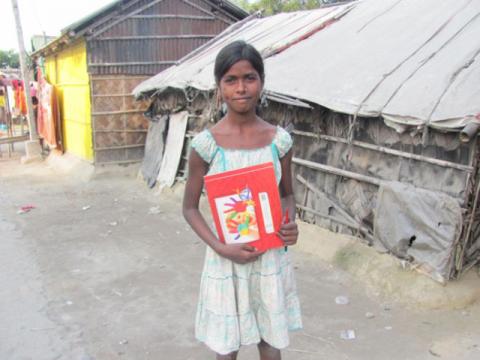Lakhi’s life has a new direction now

Laxmi Singh, known to her friends as Lakhi, is a young girl of 11. Lakhi lives with her mother, Pinki, who makes her living working as a cleaner in a local hospital earning very little. Her father passed away a few years ago. To support the family, Pinki also runs a tea shop at home.
Lakhi attended the local school till the fourth standard, but her mother could not afford the school fee after that. As a result, Lakhi had to drop out of school. She started helping her mother sell tea and gave up on her desire to study.
Around this time, World Vision’s Kopila Siliguri project started the drop-out centre in the neighbourhood for children who could not attend school. Initially out of curiosity and eagerness to study, Lakhi started attending the centre. World Vision’s staff at the centre encouraged her to continue her studies.
The Kopila siliguri project has been instrumental in bringing about change in the lives of children like Lakhi. The project works in areas where child labour, rag picking by children and other forms of exploitation are prevalent.
The project has set up six study centres to engage children in a meaningful manner and teach them to read and write, training them for school. All through the year, the centres have different activities for children to encourage them to attend school.
Through assistance from the project, Lakhi was enrolled in the fifth standard in a local school. She now enjoys going to school. “I will study well. I will not stop going to school,” says Lakhi.
The process of enrolling these children in schools is a challenging one for the staff. The parents have to be convinced about the importance of sending their children to school rather than to work.
“Initially we faced challenges in getting children to schools. Our staff met parents and explained to them the importance of sending their children to school,” says Benjamin Khasouso, Programme Officer, Kopila Siliguri project.
The project organises mass awareness campaigns in the slums, hosting debates on what keeps the children from attending school and visiting the children at home and encouraging their parents to send them to school.
After the children are enrolled in school, the staff meet the children and encourage them to continue their education. “It is very encouraging to see the changed lives of children through the efforts of the staff in our project,” adds Benjamin.
Through the committed efforts of the staff, 267 children were ready to be enrolled in school in 2012.